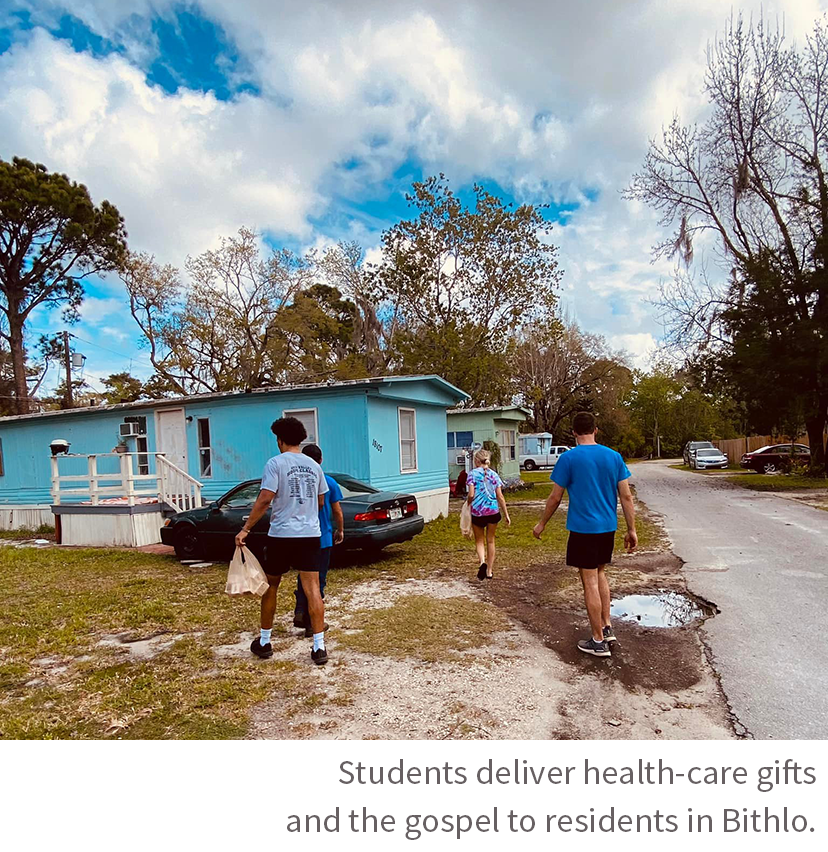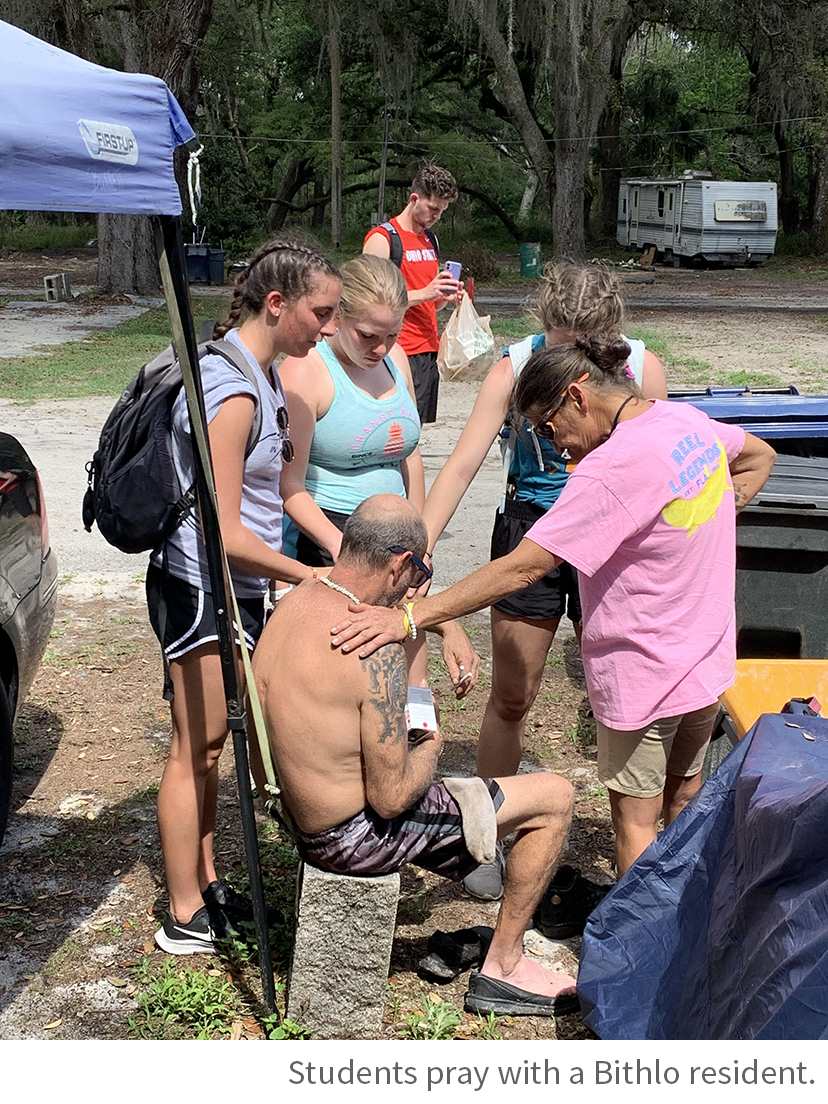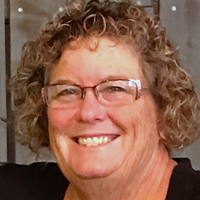
Alexa was an average teen trying to sidestep the landmines of substance abuse, violence and poverty, which were rampant in her hometown, while education was not. Somehow, through the oppressive spiritual darkness, she found her way to God.
That was before her best friend was shot in the back of her head — the triggerman, the girl's own father. To cope with her loss, Alexa turned to Xanax, a controlled substance prescribed to reduce anxiety. Soon she was in the iron grip of addiction and experiencing violence. Alexa, the girl who loved God, didn't anymore.
 Eastbound travelers along Florida's State Route 50, heading from Orlando toward the festive enclave of Christmas, zip past the oft-maligned town of Bithlo.
Eastbound travelers along Florida's State Route 50, heading from Orlando toward the festive enclave of Christmas, zip past the oft-maligned town of Bithlo.
Few stop.
Without the yuletide lure of its neighbor — which boasts quaint street names like Comet, Cupid and Blitzen — there's not much incentive to visit. In fact, many have dubbed the town the "nightmare before Christmas," and they aren't talking about a seasonal horror movie.
This is reality for Alexa and the 10,000 others who live here.
For decades, as a haven of junkyards and little else, Bithlo was the little city that couldn't. The mostly forgotten municipality is divided by the highway that connects it with Orlando, its richer neighbor to the west. In 2018, Orlando drew 75 million visitors, who spent $47 billion that generated $75.2 billion in total business sales. Bithlo, by contrast, lacked even the most basic infrastructure, including public transportation and medical facilities. Many of its residents live in dilapidated trailers.
A 2013 report by the Robert Wood Johnson Foundation, found 60% of the town's residents were illiterate and 80% of its students dropped out by the ninth grade due, in part, to addicted parents. Twenty percent of the community lives below the poverty line, including a third of its children, according to the U.S. Census Bureau.
At its incorporation a century ago, Bithlo showed promise. By 1922 the growing city had its own post office. But five years later, the national economic smackdown, ushered in by the Great Depression, didn't spare Bithlo. Unable to meet its obligations, city officials abandoned operations and filed for bankruptcy. In 1941 the town council stopped meeting.
Despite its proximity to one of the largest amusement destinations in the world, Bithlo remained mostly in limbo until 1977, when the state legislature made its demise official, dissolving its incorporation and handing jurisdictional control to Orange County. Amid the leadership vacuum, an illegal dump site masquerading as a recycling center, set up shop. Soon, its toxins leached into the community's water wells. The contaminants also included petroleum, which seeped into the ground from a different source: a former gas station. Clean water was off the table — and showers and baths and gardens — for decades.
"As a result of spending decades in governmental limbo, the community lacked public water and sewer systems, had no public transportation or sidewalks, and could not secure environmental remediation of polluted sites," declared a report by the U.S. Department of Housing and Urban Development's Office of Policy Development and Research. "Residents had to leave the community to buy groceries, see a doctor, or obtain adult education and other social services."
More than a decade ago, thanks to a collaborative effort led by a local nonprofit, Bithlo has been getting some much-needed attention. A small health clinic opened, providing vital basic care. Bus service has been restored and the Orange County Academy, a private school for at-risk kids, started for primary grades. Today the school services K-12.
 Among those helping with the transformation is Cru® Inner City, which earlier this year brought in a dozen college students, including international students, for Urban Immersion™, its annual spring break mission program. Through the weeklong cross-cultural outreach and evangelism training project, they are matched with Inner City's partner ministries who already have well-established relationships within under-served urban communities.
Among those helping with the transformation is Cru® Inner City, which earlier this year brought in a dozen college students, including international students, for Urban Immersion™, its annual spring break mission program. Through the weeklong cross-cultural outreach and evangelism training project, they are matched with Inner City's partner ministries who already have well-established relationships within under-served urban communities.
This year's projects included heading into the woods for the national Point-in-Time homeless count for the U.S. Department of Housing and Urban Development, food distribution at an extended-living motel, and assisting staff with tutoring and a sports camp at the academy.
Camryn Pickerill was one of the Urban Immersion students volunteering at the academy when Alexa pulled her aside. The teen was curious why Inner City was doing a mission trip in Bithlo. It wasn't long before Alexa opened up about her addiction to Zanax, which led to a seizure. She was rushed to a hospital where she received successful treatment.
Even though substance abuse and violence overtook her, the health crisis caused a spiritual shift, and Alexa, the girl who loved God, then didn't, found her faith once more.
"She believed (her faith in God) was how she was still alive," Camryn said.
Bringing hope to the hopeless is the core of Inner City's ministry, whether through Compassionate Products™ such as PowerPack® backpacks and Boxes of Love® holiday meals or evangelism outreaches such as Urban Immersion or Summer Missions.
| “Being comfortable (my) whole life probably means that I am not doing it right. God calls us to be set apart, to be different. There is nothing comfortable about being different.” | During its March outreach, the Urban Immersion team was exposed to a huge dose of despair, a first for most of them. One of the women the students met said more than 40 people in her trailer park had already overdosed this year. |
"They talked about really hard, sad and terrible things so casually because they are just used to it," said Kelsey Shoup.
Mike Powers said he was struck by the isolation of Bithlo's children.
"These kids need help, and there is not many people willing to go out and help them," he said. "These stories and their lives are horrendous and my heart hurts for them. I can't sit back and live my life expecting other people to go out and help them, I have to take the initiative myself or no one may ever do it. Some of these kids don't even know where their next meal is coming from, or if they're going to get shot at, or (they) watch their parents OD at night."
The experience also prompted Mike to re-evaluate his own approach to life.
"I had to take a step of faith to do something very uncomfortable and have very uncomfortable interactions," he said. "Being comfortable (my) whole life probably means that I am not doing it right. God calls us to be set apart, to be different. There is nothing comfortable about being different."
While the focus of Urban Immersion is serving those in need, the Bithlo residents were not the only ones receiving ministry. Like Mike, Caitlyn also had a life-transforming moment, coming face-to-face with Christ herself, after working with Bree, a med-school dropout and former athlete who used heroin after breaking her shoulder in nine spots.
"During prayer, Bree was brought to tears and expressed how badly she needed Jesus. She was extremely thankful we talked to her about life and faith, we even got to give her a KGP (Knowing God Personally booklet)," Caitlyn said before confessing, "I gave my life to Christ minutes after."

Previous Posts:
 Lori Arnold serves as senior writer for Cru's inner-city ministry.
Lori Arnold serves as senior writer for Cru's inner-city ministry.
Bithlo's new health clinic is helping provide vital medical services to residents, but as Inner City's Urban Immersion team discovered, the spiritual needs of its people will usher in true life change. Share the team's story on Facebook or other social media platforms by using this link:
©1994-2024 Cru. All Rights Reserved.